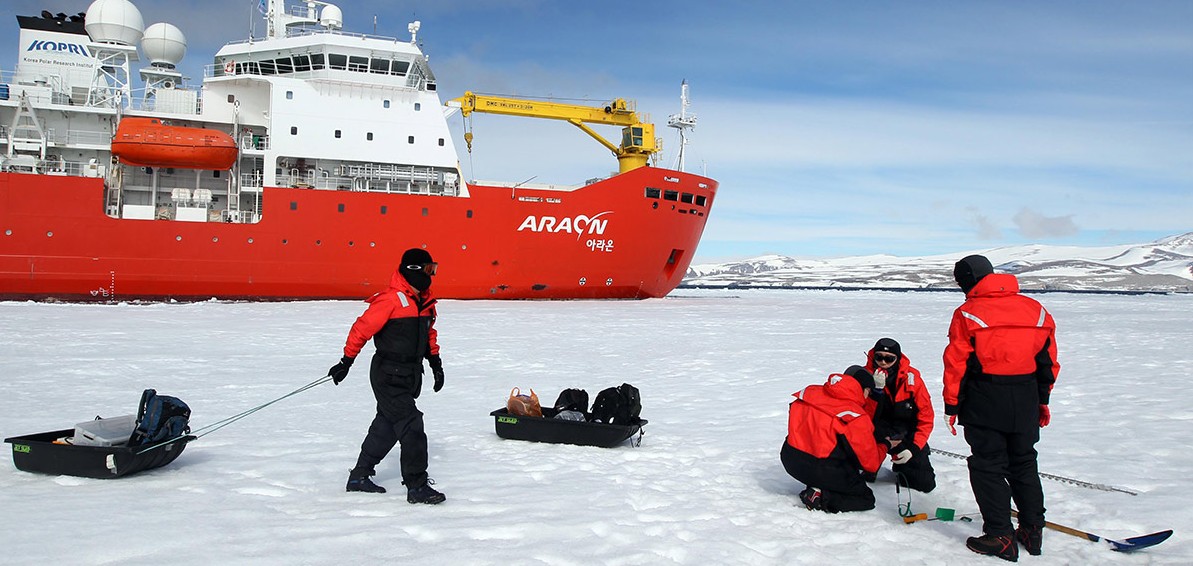Majors(by List)

- Main CampusKorea Polar Research Institute
- Participating Campus
- Number of Students 31
- Number of Faculty30
Introduce
The goals of the Polar Science Major are to gain an understanding of golabl environmental change in the long term by observing the natural phenomena of the Arctic and Antarctic and to create future value by developing a variety of resources in the polar regions. Since the polar regions are the coldest, driest, and windiest areas on the earth, they have become very interesting subjects of scientific research for various fields such as climate change, earth science, ocean science, biological evolution, paleoenvironment, glacier research, and engineering. The polar regions play a very important role in the global environment. The polar regions are the most sensitive to climate changes and absorb the excess heat of the earth. Since polar science is a multi-disciplinary convergence science covering all the natural science and some engineering fields, it can be approached by all undergraduate majors. Students majoring in Polar Science conduct in-depth research on one of the polar science subjects (climate sciences, earth-system sciences, life sciences, ocean sciences, paleoenvironment, etc.). In this major, on-site research on the Araon or at a research station in the Arctic or Antarctic is essential. Therefore, the major is suitable for adventurous students who are willing to go out on experiments and cooperate in an extreme environment without being afraid of new challenges.
International Admission(Non-Korean Citizen for Spring 2025 plan
Recruitment Guide| Master | Doctor | Integrated |
|---|---|---|
| Y | Y | Y |